CONTINGENCY OPERATING BASE SPEICHER, TIKRIT, Iraq - Iraqi Soldiers of the 4th Iraqi Army Division, 48th Brigade, Light Mortar Battery rapidly launched more than 200 mortar rounds during a live fire exercise, finishing three weeks of basic mortar training at Al Siniyah Air Base in Bayji, Aug. 18.
The Iraqi Light Mortar Battery Soldiers joined U.S. trainers from the 4th IA Div., 48th Bde. Military Transition Team and the 2nd Battalion, 27th Infantry Regiment, 3rd Infantry Brigade Combat Team, 25th Infantry Division to learn the fundamentals of indirect fire.
The Light Mortar Battery was established Nov. 6, 2008, and is comprised of three platoons with 157 Soldiers. Each platoon has four 120 mm mortars.
The Iraqi leaders of the division, along with the 48th Bde. MiTT, identified the need to train their specialized mortar unit to become proficient on basic mortar procedures.
Since the MiTT had trained mortar personnel with the team, the MiTT leaders decided to provide a basic mortar training course to ensure success for 57 of the 157 Soldiers who will operate the mortars.
"The MiTT is here to advise our Iraqi counterparts, but we have taken one extra step in the relationship to train them to be above their peers," said Sgt. 1st Class Paul de Lemos, 32, of Visalia, CA, noncommissioned officer in charge, 48th Bde. MiTT.
"We took on a training role on our own during this deployment to help enhance the Iraqi fighting force by providing commando, mortar, tactical security and combat life saving training courses," he continued.
Throughout the training, Iraqi Soldiers learned how to read maps to identify their own location and potential targets. In addition they learned how to load, handle and fire the 30 lb. rounds by first practicing with water bottles before graduating to the live rounds. On the final day, each Soldier was able to fire four rounds each during the live fire to pass the final portion of the training.
The Iraqi Division's mortar unit is the first in all of Iraq to actually live fire the 120 mm mortars, according to de Lemos.
"This is very advanced training that we are participating in and it is making us stand out from our peers in our Army," said Iraqi Sgt. Mohammed Saleh Rabeaa, one of the Iraqi Soldiers who participated in the training.
"It is our job to protect our country by supporting any battalion from our brigade...and with this training we will be able to do just that," he continued.
"With the Iraqi Soldiers receiving training on these weapon systems, it will enable them to defend their comrades and their country better," said Sgt. Steven Tremper, 23, of Warren, MI, an instructor of the mortar training.
Tremper also explained that having mortar systems are a valuable asset to any army due to the fire power the systems provide. Each mortar system is used to give indirect fire support and can create blast radius of 75 meters each, which can greatly affect the outcome of any battle.
The brigade will have an opportunity to practice their skills later at training centers in Kirkuk and Baghdad, but took advantage of U.S. expertise to train now.
"The Iraqi mortar unit received the mortar equipment before the training started, but we didn't want the Soldiers not to know how to properly operate the weapon systems...and hurt themselves or others," said de Lemos.
"It is really important for the Soldiers to understand the weapons they now possess. Now with the base of knowledge to start with, they are able to train themselves until their additional training is available," he said.
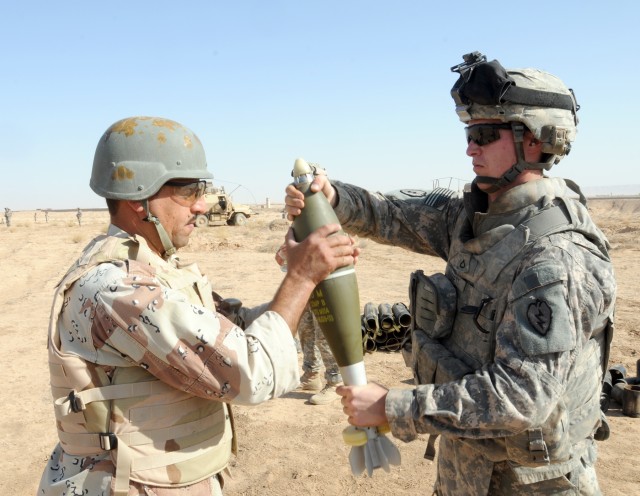
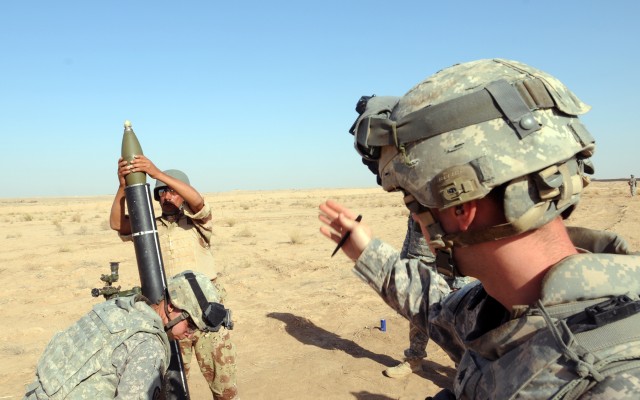
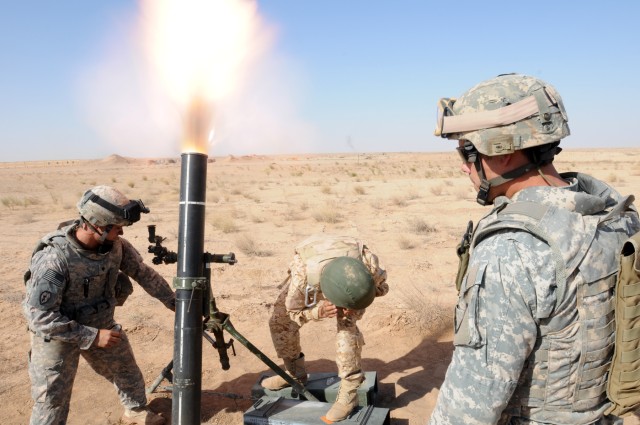
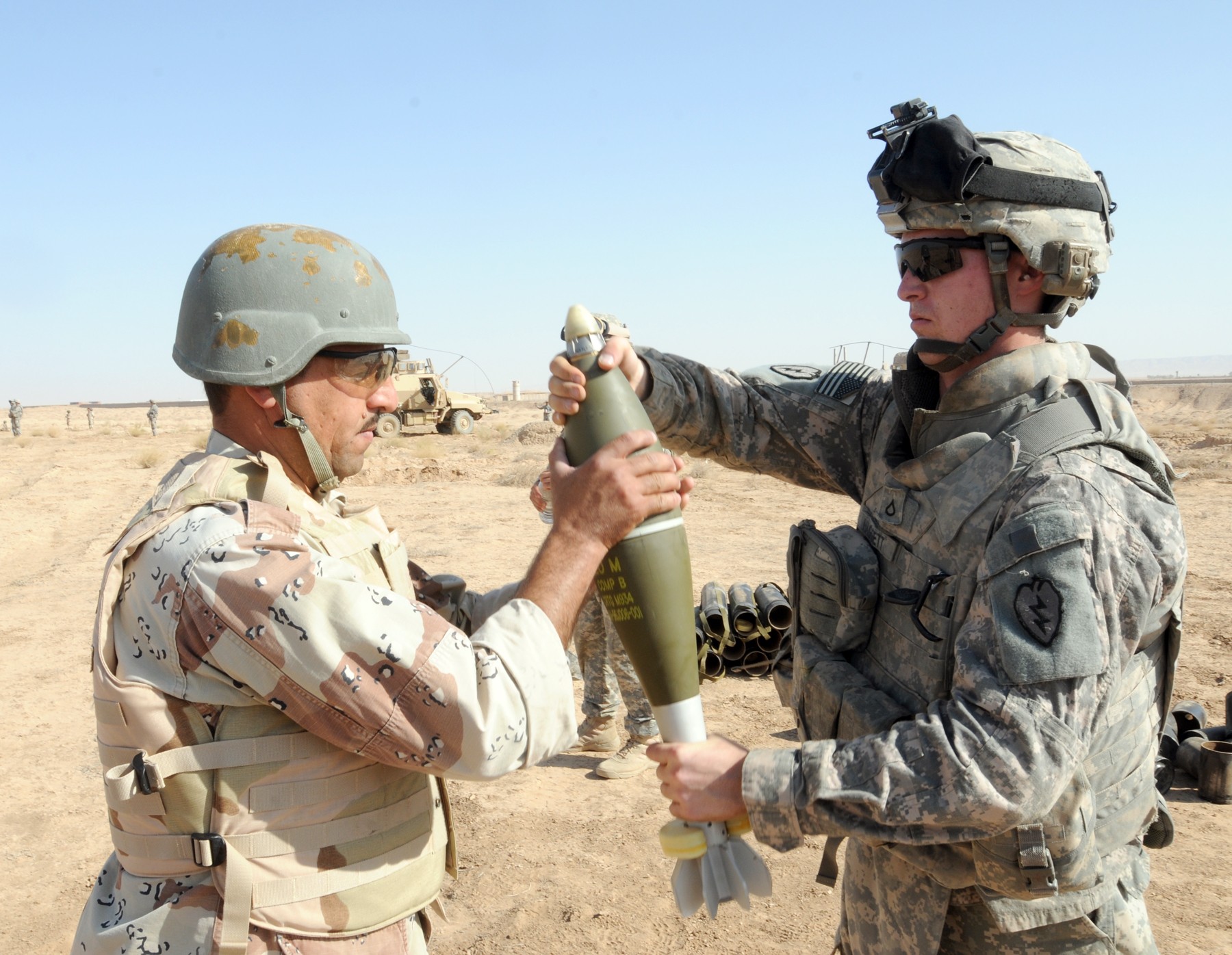
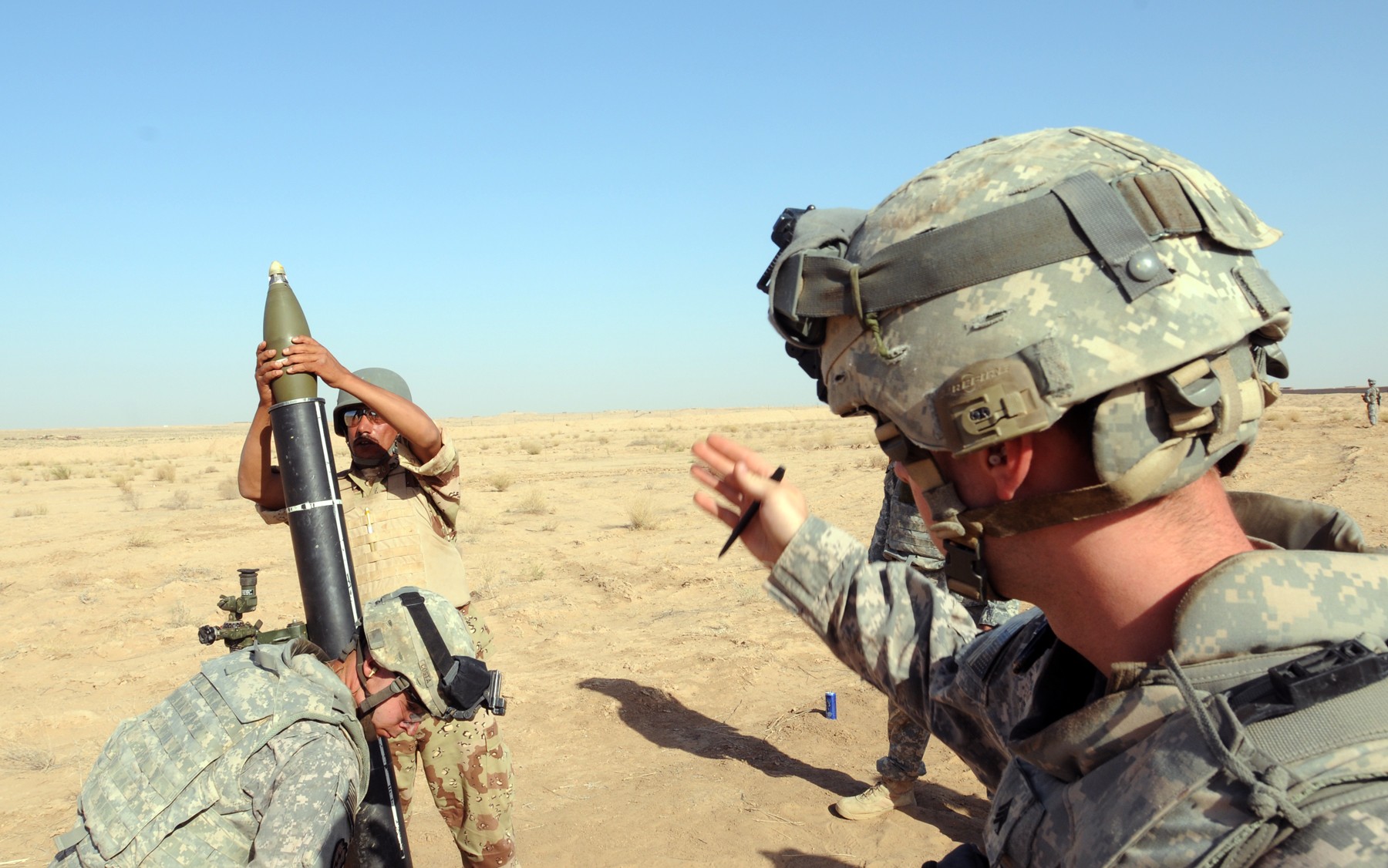
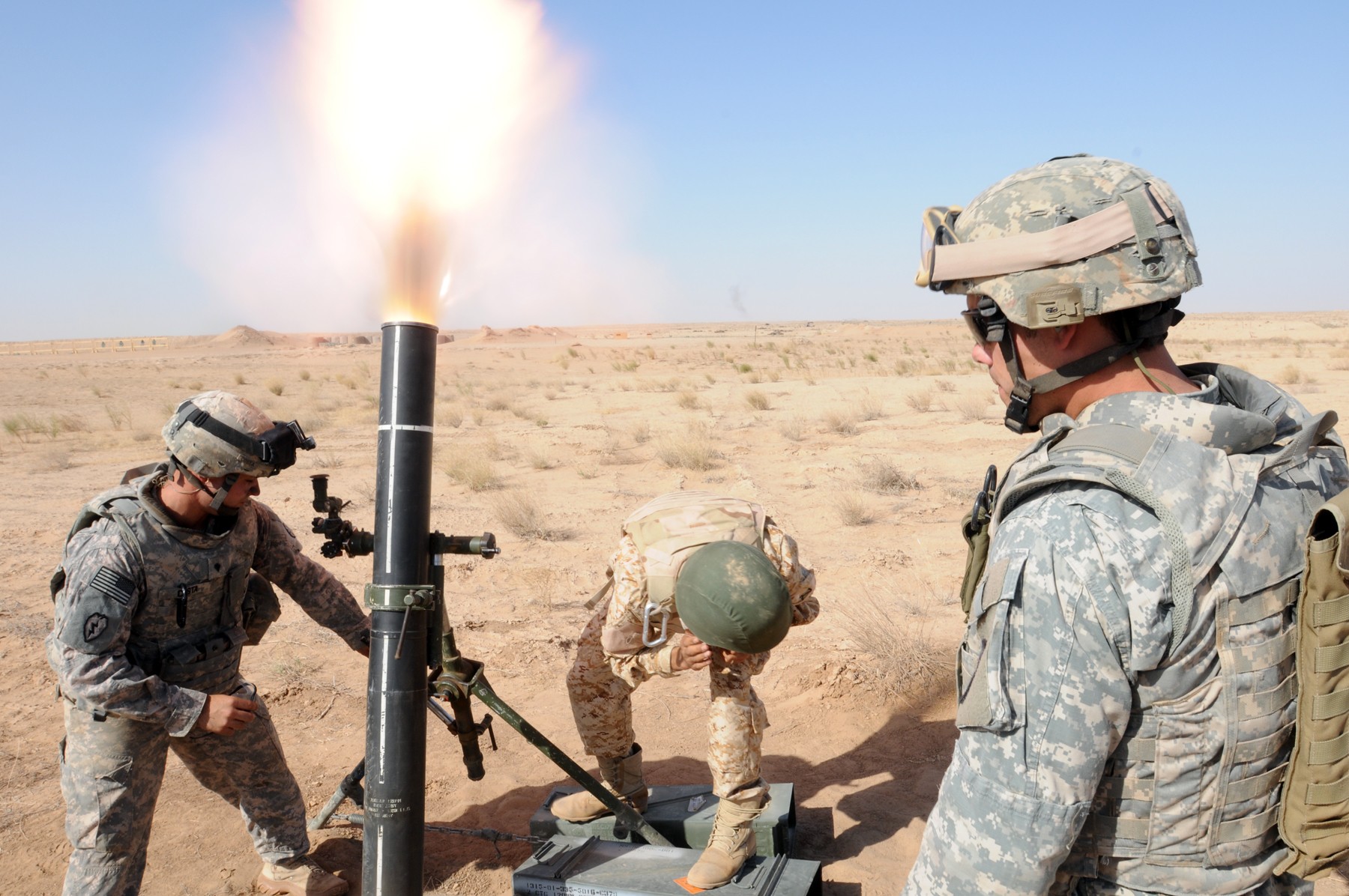
Social Sharing